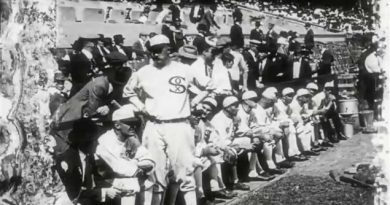Arctic Guardians– Monitoring wildlife, preserving cultural values and traditions
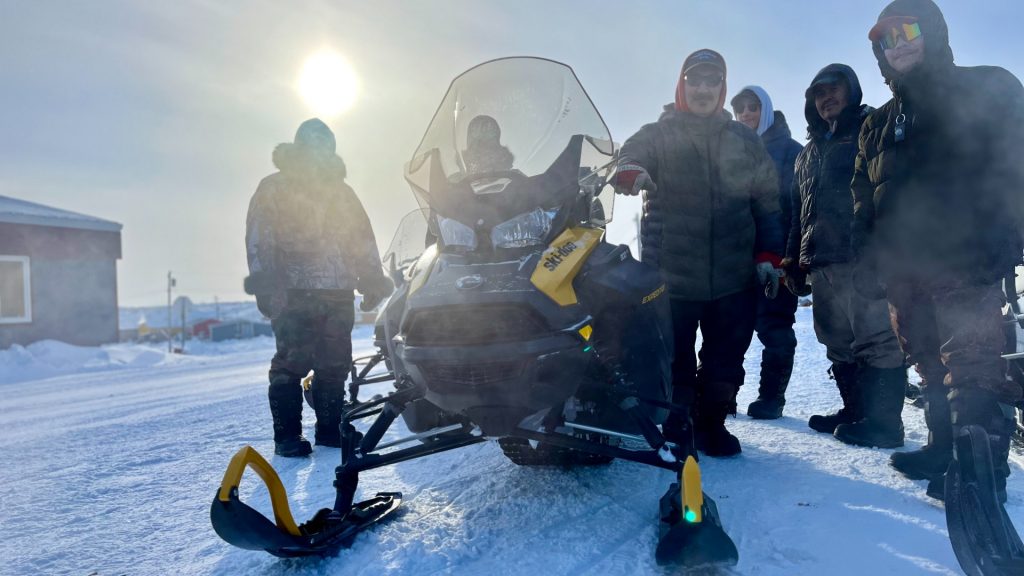
It’s early morning in the small Arctic community of Taloyoak, Nunavut, and Abel Aqqaq, the coordinator of the local Indigenous Guardians, is briefing the team about the upcoming crucial assignments that will shape their week.
Ice cores need to be collected and sent south. But first, there’s an excursion the next day for youth to participate in a traditional skills training course, including igloo building.
But there’s concerns about the snow.
In the past, they were able to take the kids just outside of the community to teach the skill, but with the environmental changes going on in the Arctic, the snow quality isn’t what it used to be.
“By now, we should have a nice solid snow that we can cut into any shape we want,” Aqqaq said. “But these days, we get a lot of powdered snow, but you can’t build a snow house or an igloo with that.”
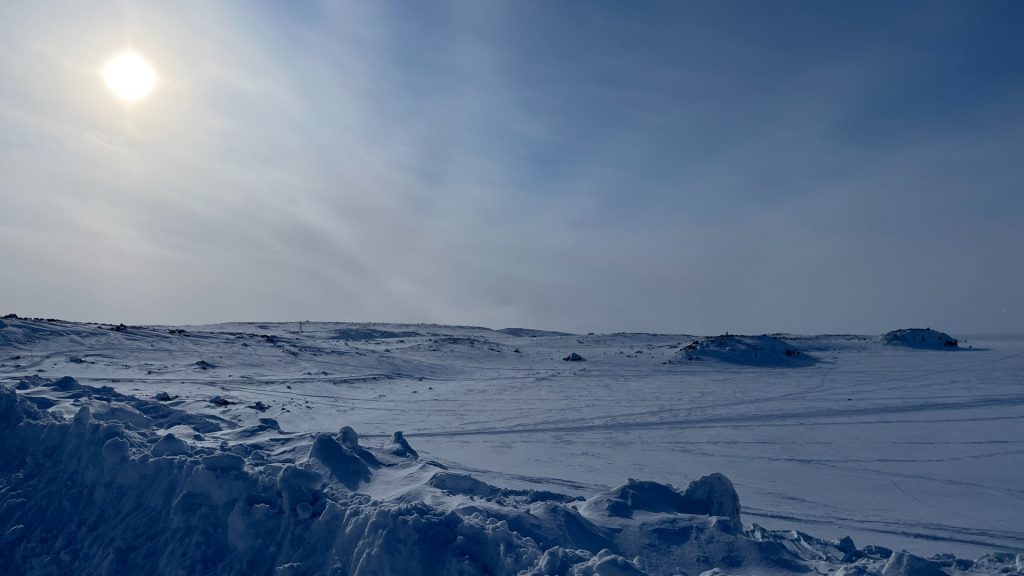
The land outside Taloyoak, Nunavut, is experiencing increasing environmental change. Local Guardians are actively tracking and monitoring these developments. (Eilís Quinn/Eye on the Arctic)
But Aqqaq said they’ll go ahead with the training anyway, given that they don’t want the warmer winter day ahead to go to waste.
“A lot of students up here don’t have proper gear to be out on the land when it’s too cold,” he said.
“The cost of living is very expensive up here, so a lot of families can’t afford the kind of warm clothing youth needs to go out on the land, so we try to work with them when the weather is going to be warmer.”
Aqqaq said the day will still be important and if they can’t find the right snow for the igloo lesson, they can still focus on things like safety out on the land, as well as things like ice fishing and traditional culture.
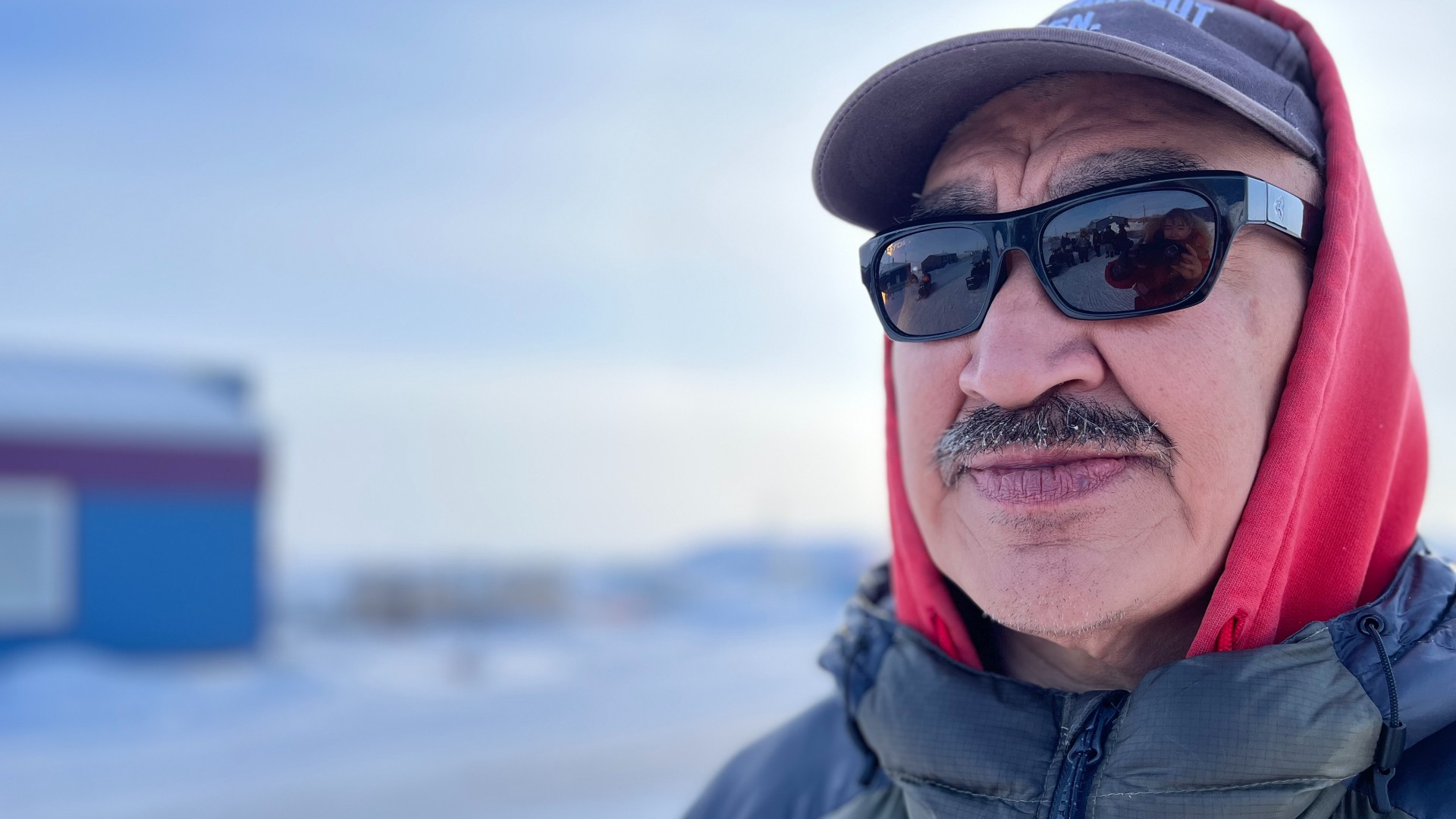
Ecosystem and wildlife monitoring
The Indigenous Guardians program was launched in 2017 and is funded by the federal government. The goal was to incorporate communities into ecosystem monitoring and surveillance.
Nowhere is that more important than Canada’s Arctic in fly-in communities like Taloyoak where local residents are the eyes and ears of the land and where there is no year-round scientific presence.
Some of the Taloyoak Guardians’ main projects include caribou monitoring, done by setting up cameras along the Boothia Peninsula to capture crucial data on migration routes and calving behavior. Additionally, they patrol the land, conduct other wildlife surveys, and gather environmental data, all with the aim of preserving the land around their community.
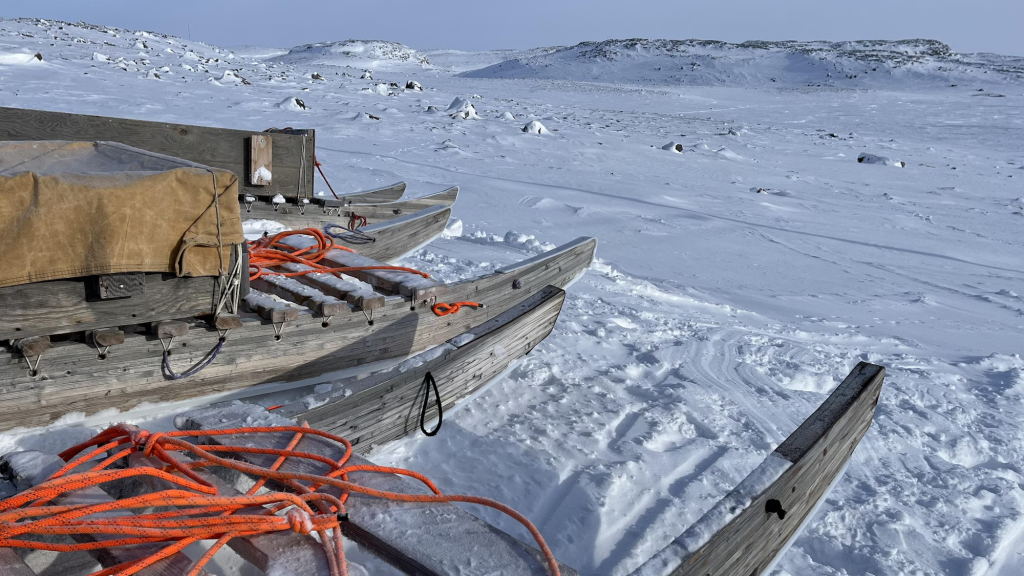
Aqqaq highlighted the Youth Guardians Program as a significant component of the initiative. The program provides training for the community’s young people in traditional skills, safety procedures, and environmental stewardship.
This hands-on training and cultural immersion aims to equip the youth with on-the-land knowledge and skills, in hopes they later join the Guardian team.
“We’re able to show them everything from how to prepare and cut meat to survival on the land, but also how to use the hydrophones and other gear for monitoring or sampling,” Aqqaq said.
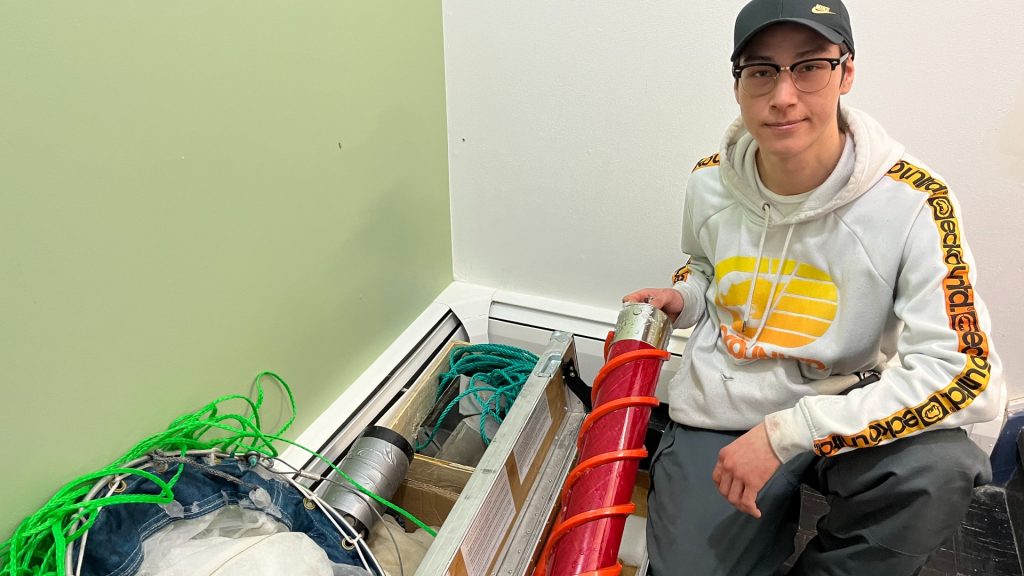
One of the Guardians’ current projects is extracting ice cores from around the peninsula, that are then melted down and sent to labs in Quebec that require the samples for research.
To do the sampling, the Guardians travel to designated stations and extract the ice cores using a drill. It takes three to five hours to travel to the sites and extract the samples depending on the location.
After a stint in construction, Tad Tulurialik has been a Guardian for roughly three years and says he still finds it rewarding.
“I grew up hunting and camping, but doing this I’ve also learned to use new technology and equipment and collecting samples,” he said.
“It’s a challenge and a lot of work, and sometimes our equipment freezes out there, but we all work together and help each other.”
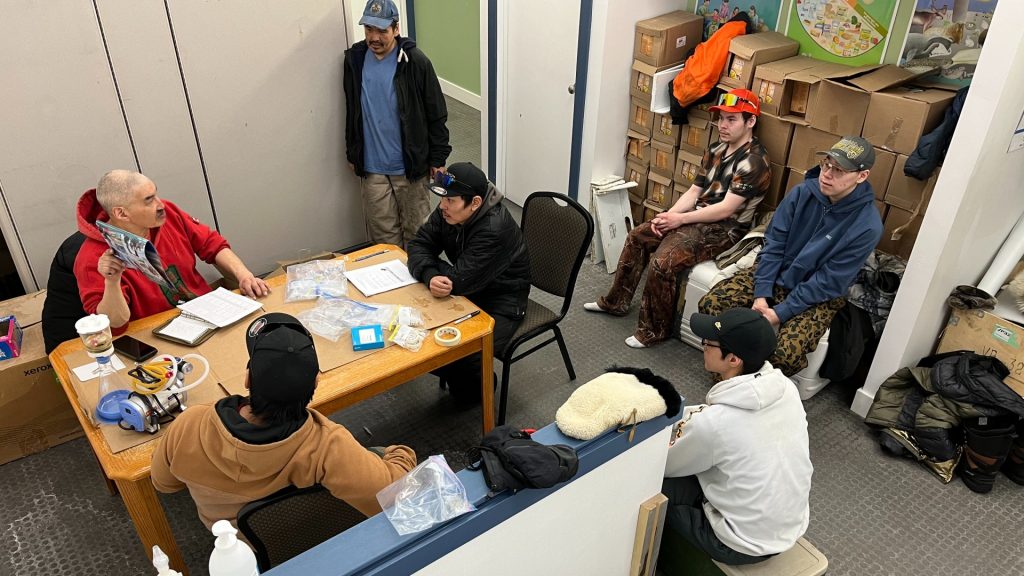
Abel Aqqaq briefs the Guardians team about the week’s tasks. (Eilís Quinn/Eye on the Arctic)
Aqqaq said it’s extremely fulfilling to look at what the team is able to accomplish.
“We’ve seen a lot, we’ve covered a lot of miles,” he said.
Both Aqqaq and Tulurialik agree that one of the most satisfying aspects of their work is the opportunity it provides to spend time on the land after their collection and monitoring duties. This time allows the Guardians to hunt for the community, supporting those who lack the resources or equipment for hunting themselves.
“We can set the net in for fish and then bring them back and distribute them to the community,” Aqqaq said. “So the people with no equipment to go out hunting, we give them country food whether they are old or young.”
Looking to the future, Aqqaq envisions growing the Guardian program, with more personnel covering greater distances year-round.
“We’re very busy at times and if I had more guys out in the field, we could explore more and cover more land and make sure the peninsula stays clean and the wildlife stay safe.”
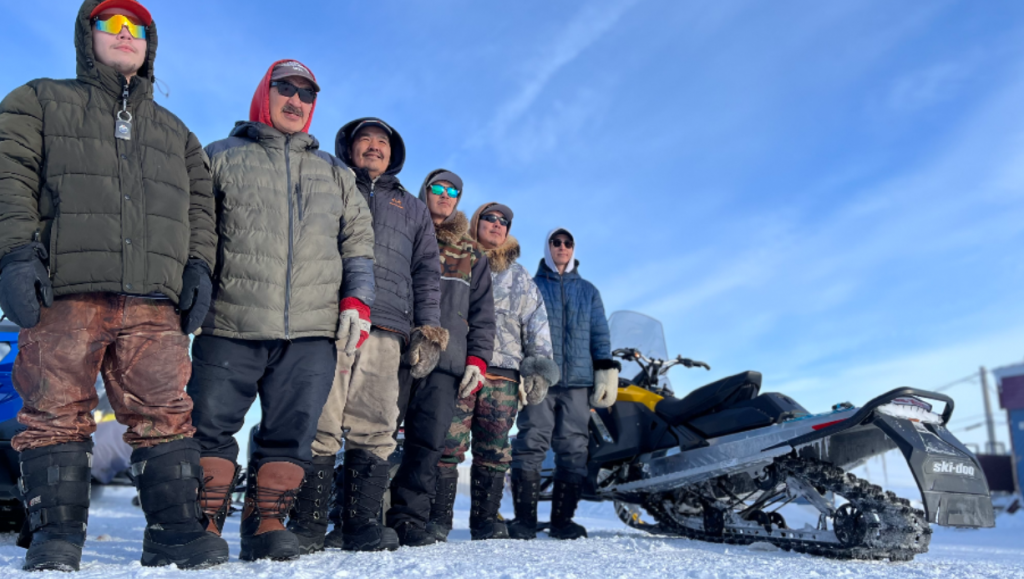
Comments, tips or story ideas? Contact Eilís at eilis.quinn(at)cbc.ca
Related stories from around the North:
Canada: Summit tackles environmental protection in Canada’s Hudson Bay region, Eye on the Arctic
Finland: Sami Parliament in Finland publishes digital guide for responsible tourism in Lapland, Yle News
Sweden: Land use rules getting hindering climate adaptation efforts in Swedish municipalities, Radio Sweden
United States: U.S. judge suspends Alaska Cook Inlet lease, pending additional environmental review, The Associated Press

